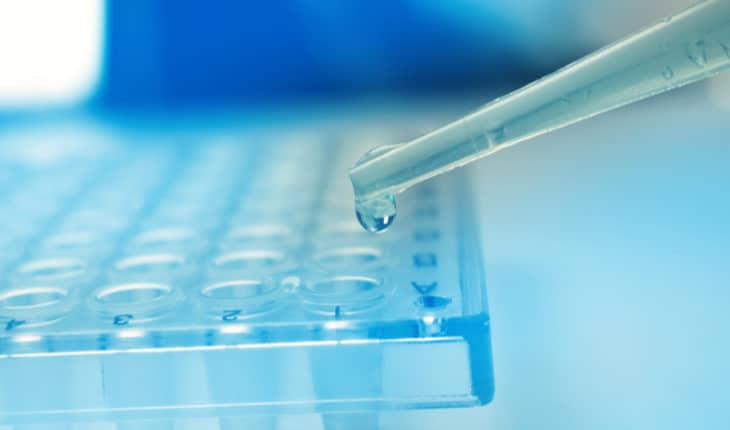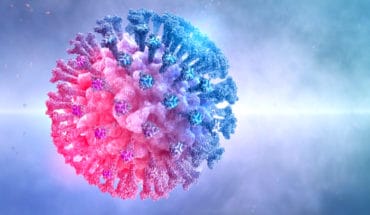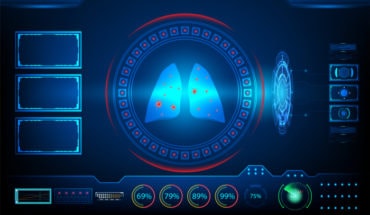A new study will look at how patients, who receive stem cell transplants for blood cancers and blood disorders, react to COVID-19 infection during their recovery.
Announced by IMPACT, a partnership of organisations committed to improving the survival rates of stem cell transplant patients by increasing the number of clinical trials across the UK, the study will:
· Characterise the immune response of stem cell transplant patients to severe COVID-19 infection and the possible impact of ongoing immunosuppressive treatments.
· Identify measurable biomarkers from blood samples that can be used to predict patient survival and identify those at the biggest risk.
· Determine how many patients are likely to need mechanical ventilation or develop sepsis like symptoms.
· Monitor how quickly patients recover from their infection.
Advances in stem cell transplantation have resulted in most patients now having a suitable donor. Despite this, more than 50% of adult transplant patients still die within five years of their transplant. Jointly funded by Anthony Nolan, Leukaemia UK and NHS Blood and Transplant, IMPACT provides a platform for 22 UK hospitals and transplant centres to share knowledge and help patients benefit from innovative treatments more quickly.
The new study, led by Dr. Giovanna Lucchini at Great Ormond Street Hospital, has been rapidly approved and established through the IMPACT Clinical Trials partnership of UK hospitals. It will monitor how adult and paediatric stem cell transplant recipients react to severe COVID-19 infection by profiling how their immune systems respond. It will also use clinical and biological characteristics to assess how the virus impacts their recovery and overall survival. Once researchers have a better understanding of how these high-risk patients react to coronavirus, it could provide the scientific basis for using targeted therapy with biological agents to treat them more effectively.
Based on current data, 15% of people infected with coronavirus will develop symptoms that need to be admitted to hospital for treatments including respiratory support. Additional complications could also arise for patients taking medication for conditions like graft vs host disease (GvHD) that supresses their immune system. This could lead to patients taking longer to recover and clear the virus from their bodies, raising the possibility of passing on the virus to other people for longer.
IMPACT Medical Director, Professor David Marks, says: “Giovanna Lucchini and Persis Amrolia from Great Ormond Street Hospital BMT Unit are investigating cytokine levels in BMT patients who acquire COVID-19 and are admitted to hospital with respiratory compromise.
“This non-interventional study will recruit adults and children from UK IMPACT centres and may help us better understand the mechanisms of lung dysfunction in this patient group, and the factors that are associated with an adverse outcome. Transplant patients who are infected may react differently to the normal population; there is already some evidence that this infection is very serious after a transplant. Understanding the changes in cytokines may enable us to offer these patients targeted therapies with the goal of improving outcomes.”
The study aims to recruit between 20 and 60 stem cell transplant patients being treated in IMPACT centres across the UK. To be eligible, patients must have tested positive for COVID-19 and have symptoms that require oxygen treatment. Within 72 hours of needing oxygen a blood sample will be taken by an IMPACT research nurse and analysed for various immunological biomarkers including white blood cell numbers and signalling molecules that control the immune system. Patients will then be examined at 30 and 100 days post-COVID-19 diagnosis to assess how their recovery progresses.
Anthony Nolan’s Chief Executive Henny Braund says: “This important study has the potential to offer a promising step forward in how we understand the effects of the COVID-19 respiratory illness on patients with weakened immune systems. It’s exactly the type of research IMPACT was created to make happen, and I’m thrilled at how quickly it was devised, reviewed and approved.
“Anthony Nolan exists because of a mother’s determination to save her son. Our charity is a lifesaving legacy; a legacy we can’t continue without lifesaving research like this, led by Dr. Lucchini, which will give more families a future.”
Leukaemia UK’s co-Chief Executive, Olive Boles, says: “Clinical trials are crucial in helping to develop new and better treatments for people with leukaemia and other blood cancers. Trials may also provide vital information about how a new disease like COVID-19 might threaten vulnerable patients who have had a stem cell transplant.
“At Leukaemia UK we have long recognised the importance of collaboration with others to speed up the trials process so that patients can benefit sooner. That is why we were so pleased to be one of the founding partners of the IMPACT clinical trials initiative.
“News of this latest trial is a testament not only to the benefits of partnership – but also to the work of the dedicated doctors and research nurses who will be working on this ground-breaking research”
NHS Blood and Transplant’s James Griffin, Consultant Haematologist at NHS Blood and Transplant and University Hospitals Bristol says:
“NHSBT are very happy to have supported the BMT COVID-19 trial utilising the IMPACT network and funded through the Great Ormond Street Hospital Biomedical Research Centre. IMPACT has enabled the trial to be set up and opened in an incredibly short time and should result in quick recruitment. This is novel research led by an expert team at Great Ormond Street Hospital and will provide important data to help inform stem cell transplant doctors and patients during the current SARS-CoV2 pandemic. The exploratory endpoints may help in directing future therapy.”
COVID-19 is likely to remain an on-going health challenge for current and future stem cell transplant patients even after the initial pandemic has been overcome. The study’s findings will give IMPACT’s clinicians a deeper understanding of this illness and allow them to identify better ways to monitor and treat transplant patients. Ultimately this will improve both their chance of making a successful recovery and improve their quality of life.
- Gut microbiome could delay onset of type 1 diabetes - 3rd April 2025
- The da Vinci 5 Robot Is Set To Transform Bariatric Care: - 31st March 2025
- Beyond money: the hidden drivers fuelling child food insecurity - 31st March 2025






